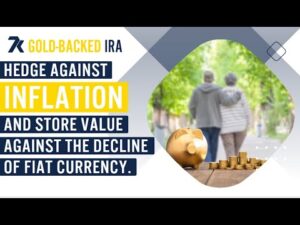
Introduction
We live in a highly digitalized world, but physical goods still dominate as a means of storing value. Real estate, in particular, is the most widely used store of value, accounting for approximately 67% of global wealth. However, recent macroeconomic and geopolitical challenges have shed light on the vulnerabilities of real estate as a physical store of value. In times of conflict, such as war, real estate can be destroyed or rendered useless, posing significant risks to wealth preservation.
War And Destruction Of Wealth
The cost of war in the 21st century has been staggering, with over 238,000 lives lost to conflict last year alone. Regions like Syria, Sudan, Ukraine, and others have experienced extensive destruction, resulting in the loss of properties and the value they held. Throughout history, physical wealth has been vulnerable to destruction caused by war, leaving individuals and societies with significant financial setbacks.
Physical vs. Digital Store Of Value
Fortunately, Bitcoin offers a solution to the threat of wealth destruction associated with physical assets. As a digital store of value, Bitcoin is highly resilient and portable. Unlike real estate, Bitcoin can be easily moved and protected from physical destruction.
Bitcoin, introduced in 2009, presents a viable alternative to real estate as a global store of value. It allows individuals worldwide to safeguard their wealth with relative ease. The divisibility of Bitcoin also makes it accessible to anyone, with the smallest unit being 1 satoshi, valued at approximately $0.0002616. Storing Bitcoin securely only requires a basic computer without internet access or a hardware wallet, making it highly convenient for relocation.
Digitization
The digitization of assets optimizes their value preservation functions, and Bitcoin is no exception. Bitcoin offers advantages such as rarity, accessibility, low maintenance costs, liquidity, and the ability to move wealth swiftly during times of crisis. By embracing Bitcoin as a store of value, individuals can truly own their wealth and mitigate the risks associated with physical assets like real estate, gold, or art.
Property Confiscation
Throughout history, physical stores of value have made individuals vulnerable to government overreach. Examples include the expropriation of Jewish properties during Nazi Germany and property seizures in Cuba under Fidel Castro. Safeguarding wealth in a digital asset like Bitcoin, which is challenging to confiscate, tax, or destroy, provides individuals with greater security and control.
Macroeconomic Changes
Macro-economic shifts can swiftly devalue real estate, primarily when purchased through loans. Increased interest rates lead to decreased affordability for financing, resulting in reduced demand and lower property prices. The global scenario of rising interest rates and reduced demand is contributing to the decline in property values worldwide. Bitcoin, on the other hand, operates independently of the traditional fiat financial system, minimizing its exposure to such macroeconomic changes.
Bitcoin vs. Real Estate
Bitcoin is less vulnerable to the problems faced by traditional fiat currencies compared to real estate. It operates independently of variables like interest rates, central bank decisions, and arbitrary governmental actions. The price of Bitcoin is predominantly determined by its supply, issuance schedule, and adoption rate. Bitcoin's disinflationary model gradually reduces its supply over time until it reaches a hard limit in 2140. The upcoming halving event, set for April 19, 2024, will further reduce the daily issuance of Bitcoin, eventually leading to a nearly negligible inflation rate.
Real estate, although scarce due to limited building land, does not have a hard cap on its supply. New land can be developed, and zoning laws can enable the construction of additional properties. This fundamental difference between Bitcoin and real estate highlights Bitcoin's absolute scarcity and its potential for long-term value preservation.
Absolute Scarcity
The concept of a fixed supply asset is relatively new, with Bitcoin being the first inherently scarce commodity. Unlike gold, which possesses an elastic supply that expands with increased demand, Bitcoin's supply is fixed and reduces with each halving event. This inherent scarcity contributes to a perpetual increase in Bitcoin's price, as long as demand continues to rise. This dynamic is expected to persist even during a global economic crisis, as the supply of Bitcoin continues to decrease.
Conclusion
In a world marked by growing conflict and a financial system in crisis, Bitcoin emerges as a superior choice for storing value, especially during periods of macroeconomic fluctuations. Bitcoin's advantages, such as digital portability, security, and resistance to government overreach, position it as a potential replacement for real estate as the preferred store of value in the future. As more individuals recognize the benefits of Bitcoin for wealth preservation, its significance is expected to rise, offering a secure means of safeguarding livelihoods even in extreme circumstances.
Frequently Asked Questions
What proportion of your portfolio should you have in precious metals
To answer this question, we must first understand what precious metals are. Precious Metals are elements that have a very high relative value to other commodities. This makes them extremely valuable for trading and investing. Gold is by far the most common precious metal traded today.
There are however many other types, including silver, and platinum. The price volatility of gold can be unpredictable, but it is generally stable during periods of economic turmoil. It is also relatively unaffected both by inflation and deflation.
All precious metals prices tend to rise with the overall market. However, they may not always move in synchrony with each other. When the economy is in trouble, for example, gold prices tend to rise while other precious metals fall. Investors expect lower interest rate, making bonds less appealing investments.
Contrary to this, when the economy performs well, the opposite happens. Investors choose safe assets such Treasury Bonds over precious metals. Because they are rare, they become more pricey and lose value.
It is important to diversify your portfolio across precious metals in order to maximize your profit from precious metals investments. Because precious metals prices are subject to fluctuations, it is best to invest across multiple precious metal types, rather than focusing on one.
What is a gold IRA account?
Gold Ira accounts are tax-free investment vehicles for people who want to invest in precious metals.
You can buy physical gold bullion coins at any time. You don't have to wait until retirement to start investing in gold.
An IRA lets you keep your gold for life. Your gold assets will not be subjected tax upon your death.
Your gold is passed to your heirs without capital gains tax. Because your gold doesn't belong to the estate, it's not necessary to include it on your final estate plan.
To open a IRA for gold, you must first create an individual retirement plan (IRA). Once you've done that, you'll receive an IRA custody. This company acts as an intermediary between you and IRS.
Your gold IRA custodian will handle the paperwork and submit the necessary forms to the IRS. This includes filing annual reporting.
After you have established your gold IRA you will be able purchase gold bullion coin. Minimum deposit is $1,000 If you make more, however, you will get a higher interest rate.
You will pay taxes when you withdraw your gold from your IRA. If you're withdrawing the entire balance, you'll owe income taxes plus a 10 percent penalty.
A small percentage may mean that you don't have to pay taxes. There are exceptions. For example, taking out 30% or more of your total IRA assets, you'll owe federal income taxes plus a 20 percent penalty.
Avoid taking out more that 50% of your total IRA assets each year. If you do, you could face severe financial consequences.
Is it a good retirement strategy to buy gold?
While buying gold as an investment may seem unattractive at first glance it becomes worth the effort when you consider how much gold is consumed worldwide each year.
The most popular form of investing in gold is through physical bullion bars. There are many ways to invest your gold. Research all options carefully and make an informed decision about what you desire from your investments.
If you're not looking to secure your wealth, it may be worth considering purchasing shares in mining equipment or companies that extract gold. If you need cash flow to finance your investment, then gold stocks could be a good option.
You also can put your money into exchange-traded funds (ETFs), which essentially give you exposure to the price of gold by holding gold-related securities instead of actual gold. These ETFs often include stocks of gold miners, precious metals refiners, and commodity trading companies.
Should You Buy or Sell Gold?
In times past, gold was considered a safe haven for investors in times of economic trouble. Many people are now turning their backs on traditional investments like stocks and bonds, and instead look to precious metals like Gold.
Gold prices have been on an upward trend over recent years, but they remain relatively low compared to other commodities such as oil and silver.
Experts believe this could change soon. According to them, gold prices could soar if there is another financial crisis.
They also pointed out that gold is gaining popularity due to its perceived value, and potential return.
Here are some things to consider if you're considering investing in gold.
- Consider whether you will actually need the money that you are saving for retirement. It is possible to save enough money to retire without investing in gold. However, you can still save for retirement without putting your savings into gold.
- Second, you need to be clear about what you are buying before you decide to buy gold. Each offer varying degrees of security and flexibility.
- Remember that gold is not as safe as a bank account. It is possible to lose your gold coins.
You should do your research before buying gold. You should also ensure that you do everything you can to protect your gold.
Statistics
- (Basically, if your GDP grows by 2%, you need miners to dig 2% more gold out of the ground every year to keep prices steady.) (smartasset.com)
- The price of gold jumped 131 percent from late 2007 to September 2011, when it hit a high of $1,921 an ounce, according to the World Gold Council. (aarp.org)
- If you take distributions before hitting 59.5, you'll owe a 10% penalty on the amount withdrawn. (lendedu.com)
- Indeed, several financial advisers interviewed for this article suggest you invest 5 to 15 percent of your portfolio in gold, just in case. (aarp.org)
- Contribution limits$6,000 (49 and under) $7,000 (50 and up)$6,000 (49 and under) $7,000 (50 and up)$58,000 or 25% of your annual compensation (whichever is smaller) (lendedu.com)
External Links
forbes.com
- Gold IRA: Add some sparkle to your retirement nest egg
- Understanding China's Evergrande Crisis – Forbes Advisor
wsj.com
- Saddam Hussein's InvasionHelped Uncage a Bear In 1991 – WSJ
- Are you interested in keeping gold in your IRA at-home? It's Not Exactly Legal – WSJ
bbb.org
finance.yahoo.com
How To
How to Buy Physical Gold in An IRA
The easiest way to invest is to buy shares in companies that make gold. However, there are risks associated with this strategy. It isn't always possible for these companies to survive. There is always the chance of them losing their money due to fluctuations of the gold price.
The alternative is to buy physical gold. You can either open an account with a bank, online bullion dealer, or buy gold directly from a seller you trust. This option is convenient because you can access your gold when it's low and doesn't require you to deal with stock brokers. It is easier to view how much gold has been stored. A receipt will be sent to you indicating exactly how much you paid. This will allow you to see if there were any tax omissions. You have less risk of theft when investing in stocks.
There are also some drawbacks. Bank interest rates and investment funds won't help you. Also, you won't be able to diversify your holdings – you're stuck with whatever you bought. Finally, the taxman may ask you about where you have put your gold.
BullionVault.com is the best website to learn about gold purchases in an IRA.
—————————————————————————————————————————————————————————————-
By: Leon Wankum
Title: Bitcoin vs. Real Estate: The Better Store Of Value In Times Of Conflict
Sourced From: bitcoinmagazine.com/markets/bitcoin-vs-real-estate-which-is-the-better-store-of-value-in-times-of-conflict-
Published Date: Mon, 12 Feb 2024 17:33:26 GMT


















